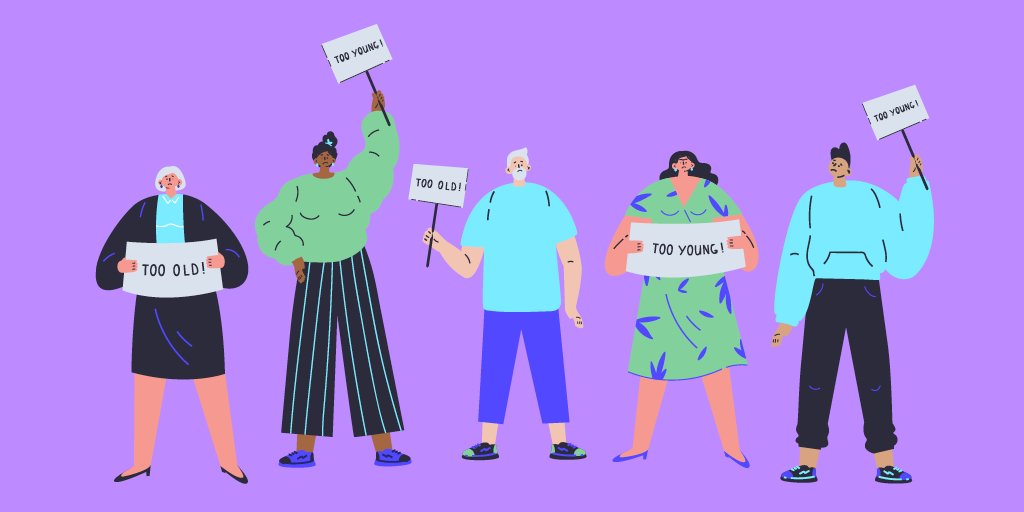Four ways you can combat ageism in your procurement team
Has a candidate not been hired in your procurement team, despite being the most qualified person for the position? How about a team member being passed over for a promotion? Maybe you, yourself, made assumptions about someone’s level of energy, or their ability to use procurement technology, based on their age alone. If so, ageism might be alive and well in your procurement team. And this certainly isn’t a good thing.

Like all other forms of discrimination, including sexism, ageism can be debilitating in a procurement team in a number of ways. It can not only stop individuals from reaching their true potential, it can also stop your team from reaching its potential – given that diversity is key to this.
Here’s a quick look at what ageism is, how to spot it, and what you can do about it.
What is ageism?
Ageism, in its most simple form, is prejudice or discrimination against someone based on their age. A lot of the time, the term ‘ageism’ is used to refer to older workers, although ageism can be directed towards anyone of any age.
An example of ageism might be not hiring a graduate because you believe they are too ‘young’ for a role, despite being fully qualified for it. Another example – one that is also sexist – might be not hiring a woman in her early to mid 30s as you believe she may be planning to have a baby, as she’s at that ‘age’.
Recently though, there’s been a lot of press about ageism as it relates to older workers. There’s evidence worldwide that despite many developed nations nearing full employment, there is still consideration discrimination against workers who are aged 55 and over.
Some companies are trying to force older workers into early retirement, while others may not provide them with adequate training programmes to continue to perform in their roles.
How can you tell if there is ageism in your procurement team?
Ageism, like other forms of discrimination, can be insidious yet difficult to spot. If any of these things are occuring within your team, ageism might be present:
- Technology or technology-related roles are only given to younger employees
- When new procurement technology is implemented, there’s an assumption that older workers may not pick it us as fast, or may need extra support
- Employees of any age are passed over for a promotion, despite being the most qualified
- Older members of your procurement team are being offered redundancies at higher rates than younger workers
- Employees of any age are being assigned to roles with less responsibility for no apparent reason
- Employees of any age are not being offered training and development opportunities for no apparent reason
If anything untoward is happening to certain age cohorts in your procurement team, there is likely ageism present. Ageism may not even be displayed through actions, it can be as simple as making assumptions about people based on their age, such as the fact that older workers may be less interested in progressing, or that they may ‘want’ a redundancy in order to retire early.
How do I combat ageism?
When it comes to ageism, especially ageism against older members of a procurement team, it’s important to remember that most people don’t decide to be ageist. In fact, many people don’t realise they are doing it.
Four things you can do to combat ageism in your team
If you think that you (or someone in your procurement team) is being ageist, try the following things:
Recognise the problem
As with any type of bias, the first step to combating ageism is acknowledging it exists. Even if you believe that some stereotypes about people in your procurement team might be true, ensure that you get to know the real person underneath.
Speak up
Is someone in your procurement team making inappropriate jokes about older workers? Perhaps they aren’t offering someone else the same opportunities as they are offering you? If so, speak up.
Ask yourself ‘How would I feel?’
One of the universal truths of human life is that we all experience being young, and also being older. For this reason if you, or someone else, is being ageist, it’s important to ask yourself how you would feel if that same discrimination was directed at you.
Encourage intergenerational experiences
Simple workplace programs, like pairing an older procurement employee with a young graduate, can help both parties develop better empathy and understanding for the other person (and their generation).
Is ageism present in your procurement team? Do you feel you’ve been the victim of ageism? Let us know your experiences in the comments below.
Find more Women In Procurement & Supply Chain news, insights, and best practises at Procurious.com.
Read more at Procurious:
- The Five Myths Of Workplace Underrepresentation, Busted!
- Fillers and Facelifts: How Far Do Men Go to Look Young at Work?
- Put Your Money Where Your Equality Is: Why Is Equal Pay Still A Thing?
- Gender Balanced Leadership – Affirmative Action
- Autonomy, Mastery and Purpose: Why The Young Are Snapping Up Tech Jobs
- Stand By Your Women (…in Procurement)